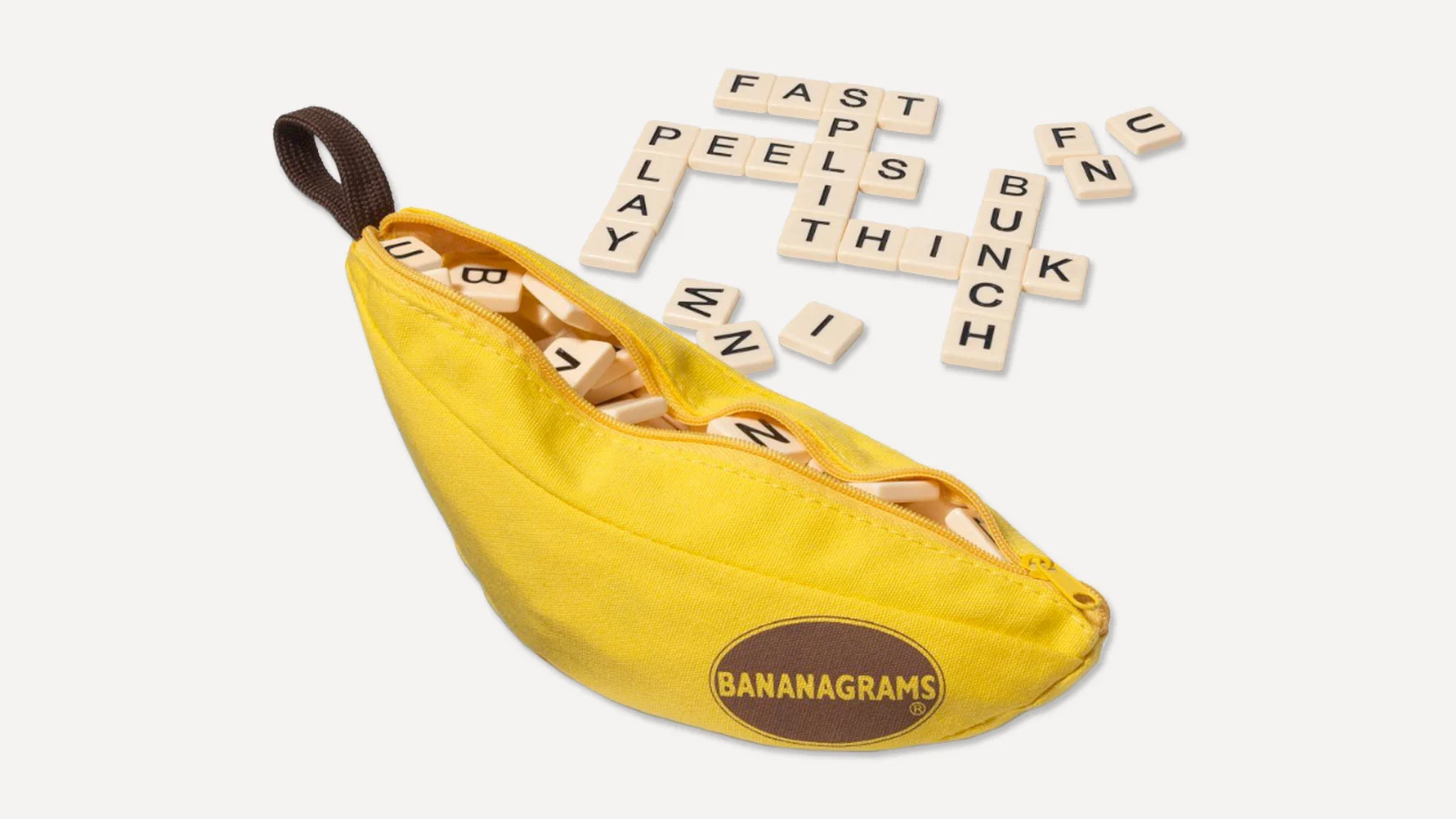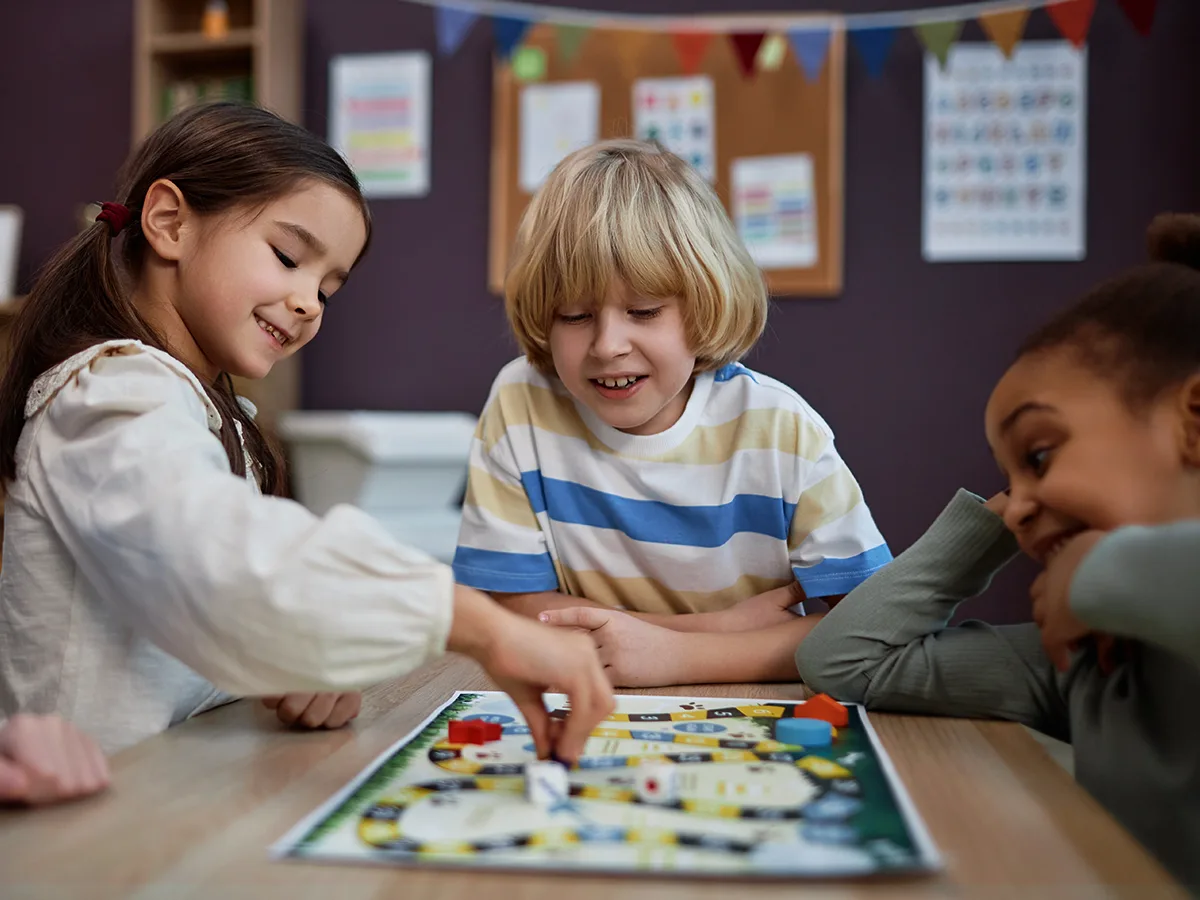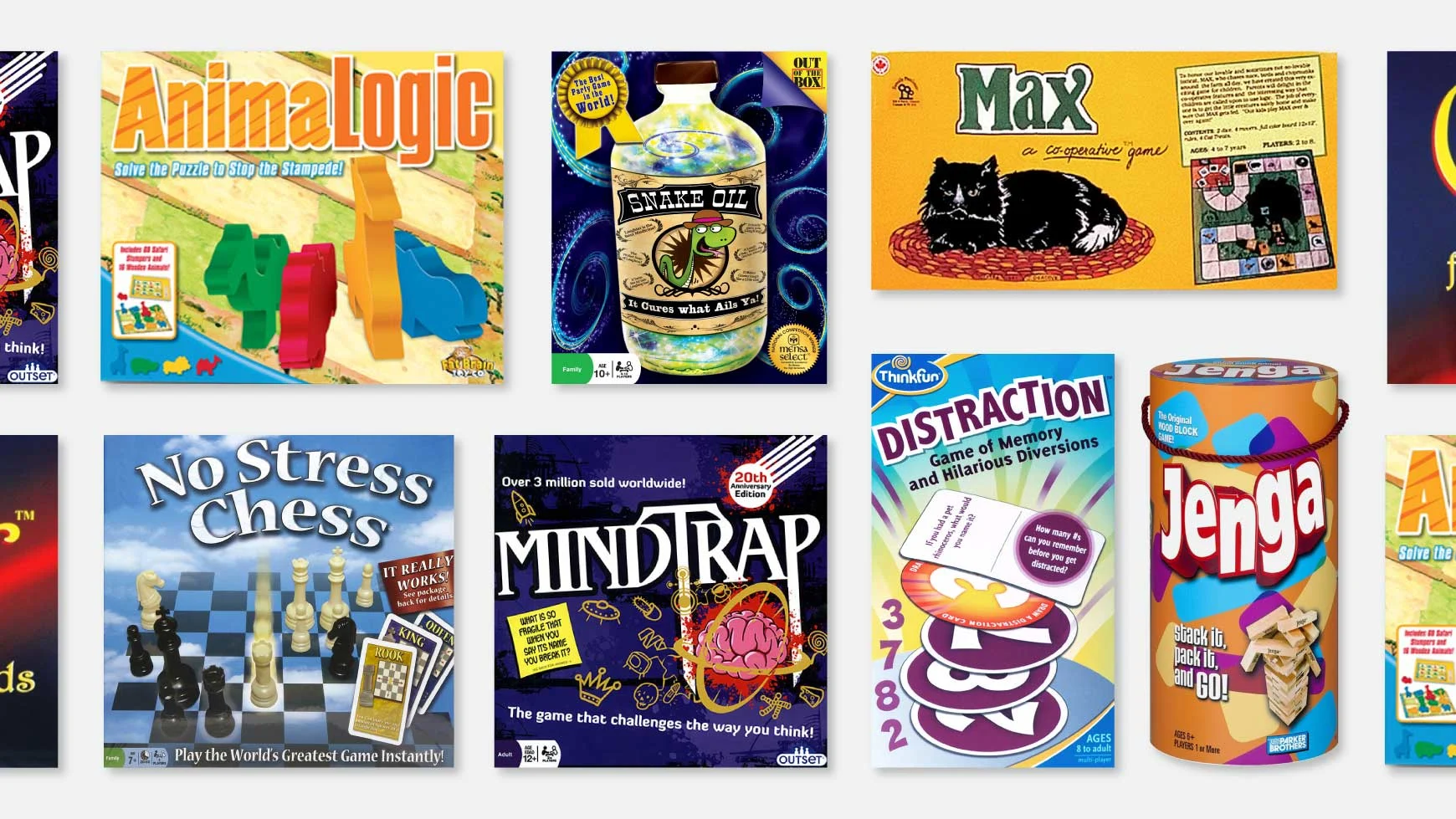8 great board games to help preschoolers build different skills
Board games can do more than just keep your preschooler occupied. They can help with learning, too. Here are some great board games to help build reading, math, and fine motor skills.
Zingo
Skills: Matching, early reading, fine motor
Zingo is a fun variation of Bingo. Each tile has a picture and a word describing that picture (such as “apple”). As kids match the image on the tile to what’s on their game board, they can also practice reading the words. The game has a neat way of storing and dispensing the tiles in a slider that can help your child practice fine motor skills. There are several versions of Zingo that target different skills, including Zingo 1-2-3 to teach number recognition and Bilingual Zingo for players who speak both English and Spanish.
Super Why ABC Letter Game
Skills: Alphabet recognition, rhyming, phonemic awareness, basic reading
Super Why is a popular — and award-winning — PBS show that helps kids learn how to read. The board game uses familiar characters from the animated show to work on skills such as matching an uppercase T to a lowercase t. Your child will also rhyme and replace nonsense words with ones that make more sense in context.
Sequence for Kids
Skills: Memory, matching, visual-spatial, reading
Each player has a hand of cards and some chips. A player picks a card that has an image of, say, a panda and looks for that animal on the game board. When the player finds the panda, the player puts a chip on it. Once a player has four chips in a row, it’s a winning “sequence.” Finding a match on the busy game board is fun and challenging. And it can be tricky to remember which chips belong to which player. As your preschooler gets older, your child can practice reading the words on the card.
Hisss
Skills: Color matching, patterning, planning, flexible thinking
This is a game of color and pattern matching. Players take turns choosing from the pile of “snake part” cards. Your child will have to see if the colors and body parts match and find a way to get to the cards your child needs before the other players do. If your preschooler can’t find the right card, your child has to come up with a new approach. Once all the cards are gone, the player with the most snakes wins.
Hi Ho Cherry-O
Skills: Counting, basic addition and subtraction, fine motor
This classic board game involves recognizing numbers and counting. There’s a lot to pay attention to in this game. Players spin the spinner and use the results to add or subtract cherries. Kids have to remember what happens when they land on the dog, bird, or spilled basket. Plucking the cherries and placing them in a bucket is also a fun way to work on fine motor skills.
Uno Moo game
Skills: Matching, sorting, memory
Uno is a classic card game that works on matching and sorting skills. Uno Moo is a simpler version that uses animal figurines instead of cards. The first player puts an animal on the barn. Each player then has to decide if they have an animal that has something in common with the one on the barn. (It can be either color or type of animal.) The first player to have all of their animals out of their haystack wins.
Memory
Skills: Concentration, attention, and memory
There are lots of different memory games you can play with your child. Some are the classic shape-matching games, like the original Memory game. Other matching games use familiar characters. Some work on reading skills by asking players to match words with objects. Whichever you choose, your child will have to pay attention to where cards are placed and which ones have been turned over. It’s great for building attention, concentration, visual-matching, and turn-taking skills.
Five Little Monkeys Jumping on the Bed Game
Skills: Counting, strategy, and fine motor
Based on the popular Five Little Monkeys book series by Eileen Christelow, this game will have your child giggling at the monkeys’ antics. Kids will also be practicing strategy, counting, sequencing, and developing fine motor skills. Using the spinner to help, players have to try to get their monkeys through the bedtime routine. But the bed might pop up and spring all the monkeys to the floor before they can finish!




